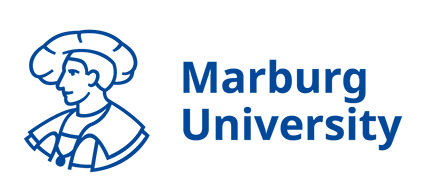Main Content
Information on Jobs in M4C

Administrative positions
- We are looking for an Administration Assistance (Verwaltungsangestellte*r)
This position is advertised for 7 years within the M4C Cluster of Excellence.
Deadline for application is January 31st, 2025.
Applications for the position is highly welcome. Please find more information here
PhD and PostDocs positions
at Marburg are published here
one Position at Münster (Project7) is published here
Please find below the descriptions for the open PhD and Postdoc positions in Marburg and Münster. In your application for Marburg you are welcome to point out which topic(s) described here would be your preference.
- Project 1: Chloroplast protein homeostasis under stress in the chloroplast of Chlamydomonas.
Investigating how the chloroplast of Chlamydomonas reinhardtii provides a robust chassis for CO2 converting enzymes, with focus on protein biogenesis, complex assembly and subcellular distribution of protein machineries.
Your profile: Doctoral degree in Molecular Plant Biology, Synthetic Biology, Structural Biology or a related area. Comprehensive knowledge of protein biochemistry, molecular genetics or plant cell biology. Previous hands-on experiences with Chlamydomonas, chloroplasts processes and Cryo-EM analyses are beneficial. Ideally the candidate has experiences with Cryo-electron tomography or is familiar with data processing of structural data.
The project will be based primarily in Marburg.
PIs: Felix Willmund, Jan Schuller, Georg Hochberg
Open level doctoral or postdoctoral projects
- Project 6: Metabolite channeling and microcompartment formation for carbon flux adaptation.
The project focuses on the molecular regulation of carbon flux through direct enzyme-enzyme interactions. These mechanisms are not only fundamental for understanding bacterial cell biology, but are also highly relevant for the targeted influencing of microbial metabolic pathways or medical issues, e.g., in the context of antibiotic resistance. As a second aspect, carbon fixation pathways using microcompartments will be implemented using synthetic biology. Using the latest high-resolution fluorescence microscopy and automated image analysis, substrate-dependent, dynamic formation of microcompartments is studied at a single-molecule level in living cells.
Your profile: For doctoral candidates - MSc (or equal) degree in the field of biology, biochemistry or chemistry; for postdoctoral candidates - a doctoral degree in these fields with a focus on biochemistry and/or microbiology and high-profile publications; extensive experience in dealing with different microorganisms (ideally including Bacillus subtilis); ability to carry out molecular biological (cloning) and biochemical experiments (protein purfication); experience with cell biological techniques (e.g. super resolution fluorescence microscopy and/or single molecule tracking); knowledge on or interest in computer programming (e.g. MATLAB, Python, or others); independent, autonomous thinking
The project will be based primarily in Marburg.
PIs: Peter Graumann, Tobias Erb, Jan Schuller
Doctoral projects based in Münster
- Project 7: Biochemical characterization and phylogenetic analysis of methyltransferases within the methylamine methyltransferase family.
Investigating the biochemical properties and the evolutionary history of uncharacterized MTs within the methylamine methyltransferase family as well as identifying novel methylated substrates for methane and CO2 production
Your profile: MSc (or equal) degree in Microbiology, Biochemistry, or related area. Comprehensive knowledge of/expertise and hands-on experience in microbial physiology and protein biochemistry. Additionally, knowledge of/experience in working with anaerobic microorganisms and phylogenetics is advantageous.
The project will be based primarily in Münster.
PIs: Julia Kurth, Georg Hochberg
Doctoral projects based in Marburg
- Project 10: Switchable control of synthetic regulons in cell-free systems, protocells, and in vivo.
Design and application of transcriptional switches for stepwise control of multiple regulons to operate new-to nature CO2 fixation pathways in vitro and in vivo.
Your profile: MSc (or equal) degree in Microbiology, Molecular Biology, Biochemistry or related areas. Comprehensive knowledge of bacterial genetics and gene regulation. Expertise and hands-on experience in protein biochemistry and engineering, gene regulatory studies, and a solid background in synthetic biology approaches and genome engineering.
The project will be based primarily in Marburg.
PIs: Anke Becker, Tobias Erb
If you have questions, please reach out to: bettina.happel@synmikro.uni-marburg.de


